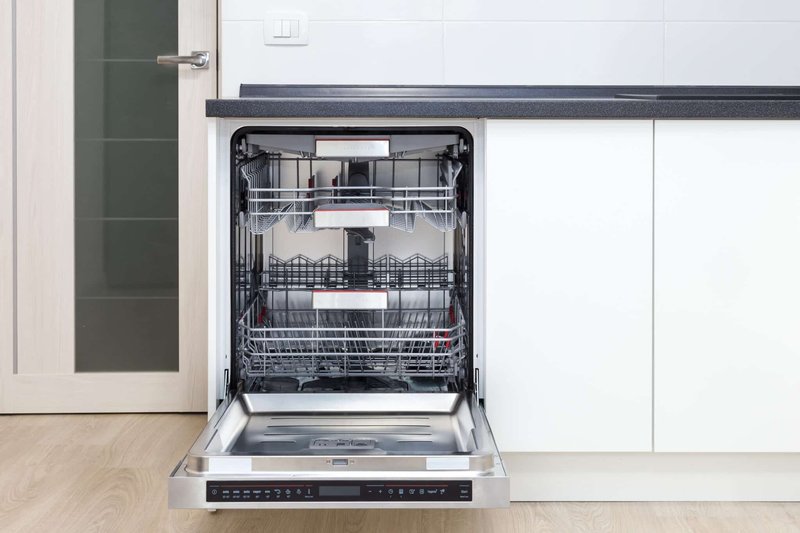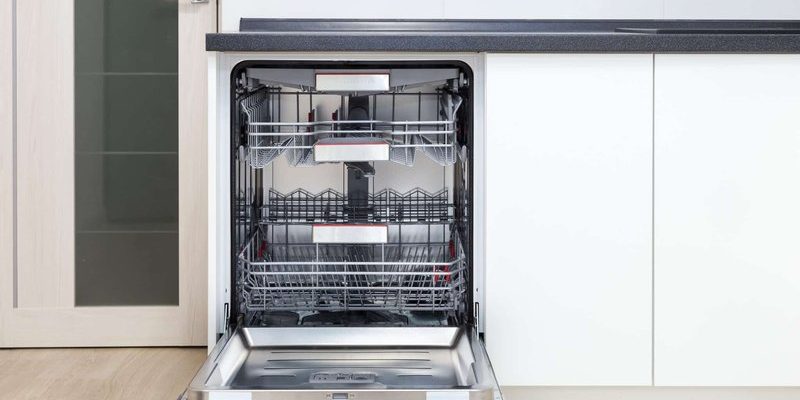
You might be wondering: *”How do I even start the process of claiming a warranty? What if I lose my receipt? Will GE charge me for repairs?”* These are all totally normal questions. Let me explain step-by-step how to navigate this process without feeling overwhelmed. By the time you’re done reading, you’ll know exactly what to do when your GE dishwasher needs warranty service.
Understanding Your GE Dishwasher Warranty: What It Covers and What It Doesn’t
Before jumping into the claims process, it’s important to understand what the warranty actually covers. GE dishwashers usually come with a one-year limited warranty on parts and labor, starting from the date of purchase. This means if your dishwasher has a manufacturing defect or a faulty part within that time frame, GE will fix or replace it without charging you.
However, not everything is covered. Normal wear and tear, damages from misuse, or issues caused by improper installation typically fall outside the warranty’s safety net. For example, if your dishwasher stops draining because it got clogged with debris from poor maintenance, that’s likely on you. Also, cosmetic damages like scratches or dents won’t be covered.
Here’s a quick list to clarify:
- Covered: Manufacturing defects, faulty parts, and repair labor within warranty period
- Not covered: Damage from accidents, misuse, neglect, unauthorized repairs, or external causes
Knowing this upfront can save a headache later if a claim is denied. Honestly, warranties are there to protect you from product defects—not everyday mishaps.
Gathering Your Documents: The First Step to a Smooth Warranty Claim
One of the easiest ways to slow down your warranty claim is missing paperwork. Think of it like trying to check into a hotel without your ID—it just doesn’t work. Here’s what you’ll want to have ready before contacting GE:
- Proof of Purchase: This is usually your sales receipt or online order confirmation showing when and where you bought the dishwasher.
- Model and Serial Number: These unique identifiers are usually on a label inside the dishwasher door or on the frame.
- Warranty Card or Documentation: If you still have the warranty booklet or card that came with your dishwasher, keep it handy.
If you can’t find your receipt, don’t panic. Sometimes credit card statements or retailer accounts can serve as proof of purchase. Just make sure it clearly shows the date and item purchased. GE requires this to confirm the warranty period and validate your claim.
How to Contact GE Support for Your Dishwasher Warranty Claim
Now that your paperwork is ready, the next step is reaching out to GE’s customer service. Here’s the thing: calling support can sometimes feel like talking to a robot, but GE has real people who can help—if you know how to get them. Start by visiting their official website or check your dishwasher’s user manual for the warranty claim number.
When calling, have your documents ready and be prepared to explain the problem clearly. For example: “My dishwasher isn’t draining water properly after a few cycles.” Being specific helps the technician diagnose the issue faster.
You can also try online support options. GE offers chat and email support where you can submit warranty claims or schedule repair services. Many users find this convenient because it saves phone hold time.
Preparing for the Repair: What to Expect During a Warranty Service Visit
Once your warranty claim is accepted, GE typically arranges for an authorized technician to visit your home. This part might leave you wondering: *”Do I need to do anything special?”* Here’s what to keep in mind.
First, make sure the dishwasher area is accessible and clear of clutter. The technician usually brings the tools and parts needed for most repairs but may need to order special parts if your problem is unusual. If that happens, repairs could take longer.
Be ready to describe the issue again during the visit, even if you’ve already explained it over the phone or chat. Sometimes, this helps the technician spot hidden problems or perform a quick reset or sync of the dishwasher’s system code to fix glitches.
Also, don’t be surprised if the technician asks you to run a test cycle or to reset the dishwasher’s controls. GE dishwashers sometimes need a manual reset to clear errors, and this could be part of troubleshooting.
What to Do if Your Warranty Claim Is Denied
It’s frustrating when your warranty claim gets denied—that’s an experience many GE dishwasher owners have faced at some point. Here’s the thing: denial usually happens because the issue isn’t covered under warranty, documentation was incomplete, or the claim was filed late.
If this happens, don’t lose hope. First, ask for a clear explanation of why the claim was denied. Sometimes, it’s a simple fix like submitting a missing receipt or getting a second opinion from another authorized service center.
You can also explore alternative repair options. Many local appliance repair shops specialize in GE dishwashers and may be able to troubleshoot problems that aren’t covered by warranty, like battery replacement for electronic controls or resetting sync issues.
If your dishwasher is still fairly new but the warranty won’t cover it, ask if GE offers any goodwill service or extended warranty plans. Occasionally, they might help if you’re polite and persistent.
Tips to Maintain Your GE Dishwasher and Avoid Future Warranty Claims
Honestly, no one loves dealing with warranty claims—prevention is way better. Keeping your GE dishwasher in good shape can save you time and stress down the road.
- Regular Cleaning: Remove food debris from filters and spray arms to prevent clogs.
- Use Recommended Detergents: Harsh or incompatible soaps can damage internal parts.
- Avoid Overloading: Crowding dishes can strain the dishwasher’s motor and reduce cleaning efficiency.
- Run Diagnostic Cycles: Some GE dishwashers allow you to run tests that check for errors or faults.
By keeping up with these easy habits, you’ll not only extend your dishwasher’s life but also minimize the chance of running into issues that require warranty repairs.
Understanding Warranty Terms: What You Might Not Know
Warranty terms can sometimes feel like reading a foreign language. You might see words like “limited warranty,” “exclusions,” or “repair authorization” thrown around. Let me explain what these usually mean for your GE dishwasher.
A limited warranty means GE covers specific parts and types of repairs, but with conditions. For example, labor might be covered only for the first year, while some parts could have longer or shorter coverage periods. Always check the exact terms that came with your dishwasher.
“Exclusions” are essentially the don’ts—things that void your warranty. That often includes unauthorized repairs, modifications, or damages from natural disasters.
Lastly, “repair authorization” means you need permission from GE before hiring a repair technician or buying replacement parts to ensure the repair is covered.
Reading through your warranty terms once or twice can save you from surprises if you ever need to claim it.
Closing Thoughts: Claiming Your GE Dishwasher Warranty Without the Headache
At the end of the day, claiming a warranty for your GE dishwasher doesn’t have to feel like decoding an ancient map. The key is knowing what your warranty covers, keeping your paperwork organized, and communicating clearly with GE’s support team. Think of it as having a conversation with a helpful repair buddy who just happens to be a phone or chat away.
If you approach this process calmly and prepared, it can smooth out the bumps that come with unexpected appliance troubles. And remember, regular maintenance isn’t just good for your dishwasher—it’s a smart move that keeps your warranty claim-free for longer. So, when your dishwasher acts up, you’ll know exactly how to put on that safety helmet and get back to clean dishes with minimal fuss.
